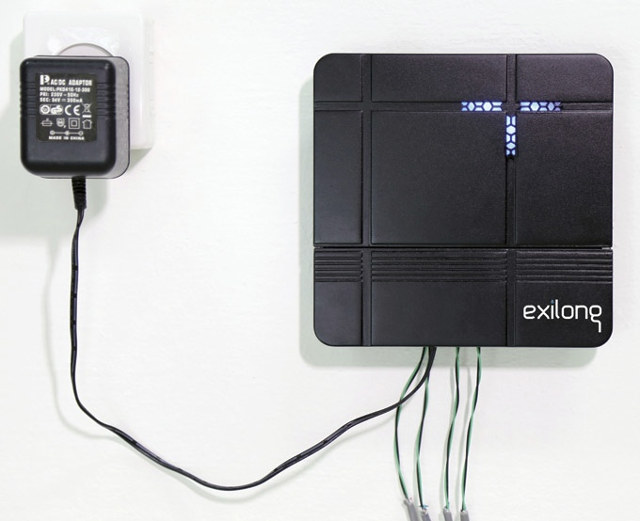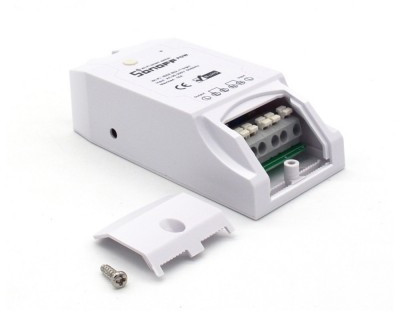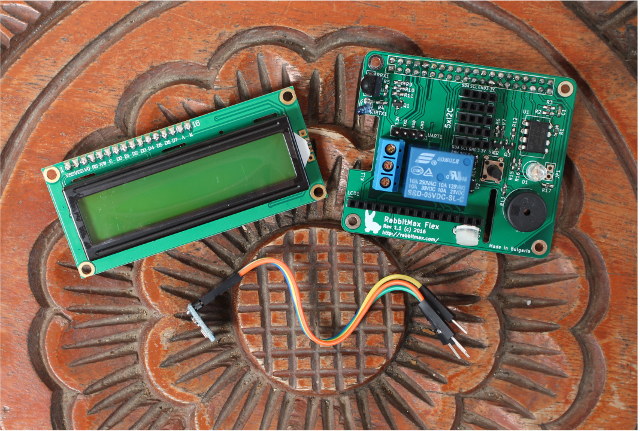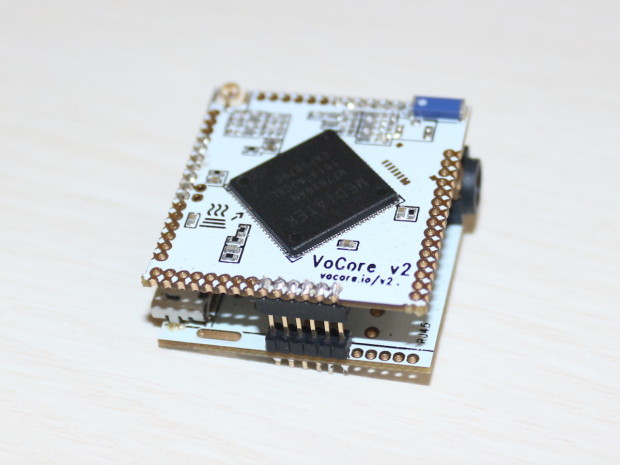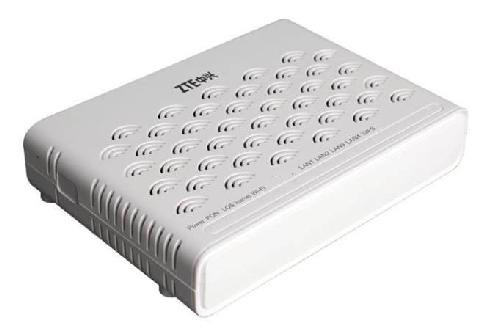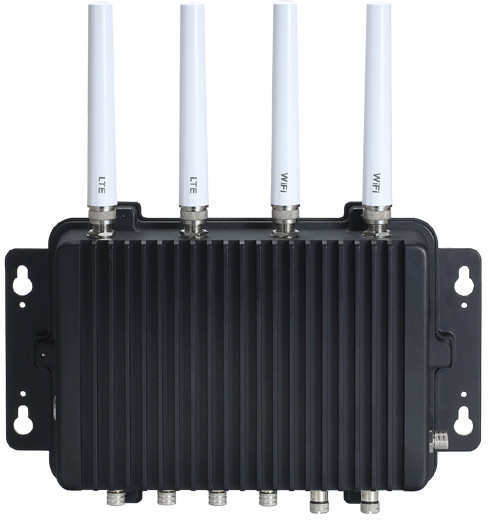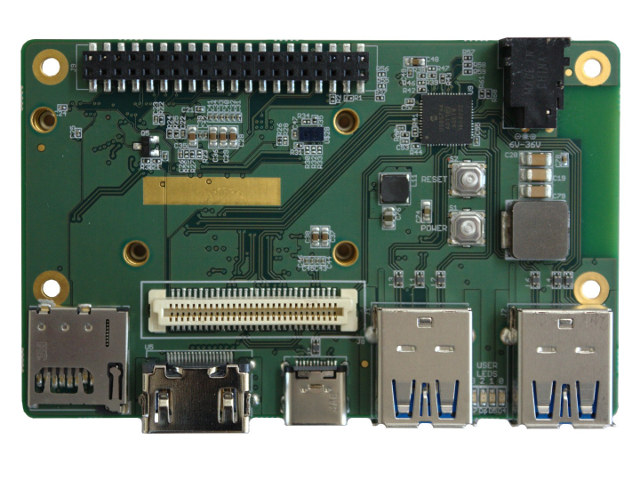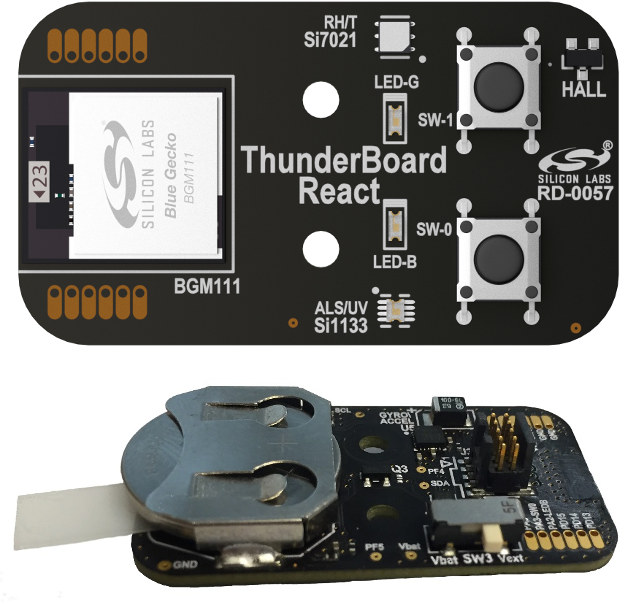I find it fun to spend time watering the flowers and grass in my garden, but if you’d rather do it automatically then Tevatronic Exilong might be for you as the irrigation system controls up to 4 valves, triggers watering based on RF water sensing sensors via a gateway connected to the cloud through your wireless router. The kit gateway takes care of RF communication with sensors, WiFi connectivity to the cloud server, and turn on and off up to four 24V DC water valve part of your existing installation. It can be configured by iOS or Android mobile app, or your web browser. The other part of the kit are the water pressure sensors that you need to insert into the soil of your garden in order to monitor trees, bushes, and/or flowers. The sensors are using RF (433/915 MHz) communication, send data back to the gateway every minute, […]
Sonoff Pow is a $10.50 ESP8266 WiFi Relay Box that also Measures Power Consumption
In a recent article about Sonoff TH10/TH16 WiFi relays with sensor probes support, we also saw that ITEAD Studio started to have a nice family of home automation products. The company has now added one more item to the Sonoff family with Sonoff Pow support up to 16A/3500W input, and the first to also include power consumption measurements. Sonoff Pow specifications: SoC – Espressif ESP8266 Tensila L106 32-bit MCU up to 80/160 MHz with WiFi Connectivity – 802.11 b/g/n WiFi with WPA/WPA2 support Relay – HF152F-T relay with 90 to 250 VAC input, up to 16A (3500 Watts) Terminals – 6 terminal for mains and load’s ground, live and neutral signals. Programming – Unpopulated 4-pin header for flashing external firmware Misc – LEDs for power and WiFi status, power consumption circuitry with 1% accuracy. Dimensions – 114 x 52 x 32mm Temperature range – -40 ℃ to 125 ℃ The […]
RabbitMax Flex IoT & Home Automation Board and Kit for Raspberry Pi
RabbitMax Flex is an add-on board for the Raspberry Pi boards with 40-pin headers, namely Raspberry Pi Model A+ and B+, Raspberry Pi 2, Raspberry Pi 3 and Raspberry Pi 0, destined to be used for Internet of Things (IoT) and home automation applications thanks to 5x I2C headers, a relay, an LCD interface and more. I’ve received a small kit with RabbitMax Flex boards, a BMP180 temperature & barometric pressure I2C sensor, and a 16×2 LCD display. RabbitMax Flex specifications: Relay – Songle SRD-05VDC-SL-C supporting 125V/250VAC up to 10A, 30VDC up to 10A Storage – EEPROM with some system information for identification IR – IR LED, IR receiver Misc – Buzzer, Button, RGB LED Expansion Header for LCD character display + potentiometer for backlight adjustment 5x 4-pin headers for I2C sensors Dimensions – Raspberry Pi HAT compliant The assembly of the kit is child’s play as you don’t even need […]
VoCore2 WiFi IoT Board Launched with Audio, PoE & “Ultimate” Docks (Crowdfunding)
Vocore WiFi IoT board was popular at its launch in 2014 because affordable WiFi boards with I/Os were not common at the time, and it came with an Ethernet dock making it a complete router within a tiny and cute cube. The developers have been working on VoCore2 (aka Vocore V2) with a faster processor, more memory, a lower power consumption, a better WiFi signal, and more I/Os for several months, and have now launched the board on Indiegogo aiming to raise at least $6,000 for mass production. Vocore2 board specifications: SoC – Mediatek MT7628AN MIPS processor @ 580 MHz System Memory – 128 MB DDR2 Storage – 16MB NOR FLASH, 1x SDXC via I/O pins Connectivity WiFi 802.11n 2T2R up to 300 Mbps with either 2 u.FL connector or 1 u.FL connector + on-board chip antenna (Max signal output >19.5dbm peak) 2x 10/100M Ethernet interfaces via I/O pins I/Os […]
Routers, IP Cameras/Phones & IoT Devices can be Security Risks even with the Latest Firmware, and a Strong Admin Password
I’ve just read an interesting article entitled “who makes the IoT things under attack“, explaining that devices connected to the Internet such as router, IP cameras, IP Phones, etc.. may be used by Botnet to launch DDoS attacks, and they do so using the default username and password. So you may think once you’ve updated the firmware when available, and changes the default admin/admin in the user interface, you’d be relatively safe. You’d be wrong, because the malware mentioned in the article, Mirai, uses Telnet or SSH trying a bunch of default username and password. That made me curious, so I scanned the ports on my TP-Link wireless router and ZTE ZXHN F600W fiber-to-the-home GPON modem pictured below, and installed by my Internet provider, the biggest in the country I live, so there may be hundred of thousands or millions of such modems in the country with the same default […]
Axiomtek Introduces IP67 Rated Waterproof Embedded Computer for Outdoor Applications
Axiomtek has just launched eBOX800-841-FL rugged IP67-rated fanless embedded system for “outdoor critical applications” such as the Industrial Internet of Things (IIOT) gateways. The waterproof mini PC is powered by a quad core Intel Atom E3845 Bay Trail-I processor, and supports temperatures between -30°C to 60°C. Axiomtek eBOX800-841-FL embedded computer specifications: SoC – Intel Atom E3845 quad core processor @ up to 1.91 GHz with Intel HD graphics (10W TDP) System Memory – 204-pin SO-DIMM DDR3L-1066/1333 slot up to 8 GB RAM Storage – 1 x mSATA, 1x 2.5″ SATA HDD, 1x CFAST slot Video Output – VGA (M12 screw type) Connectivity 2x 10/100/1000Mbps Ethernet (M12 type) WiFI & LTE via mini PCIe slots 1x SIM socket 4x N-jack waterproof antenna connectors USB – 2x USB 2.0 ports (M12 type) Serial ports – 2 x RS-232/422/485 ports (M12 type) Expansion 1x full-size PCI Express Mini Card slot (USB + PCI […]
Gumstix Nodana 96BCE 96Boards Compatible Baseboard Takes Intel Joule Module
96Boards is an initiative from Linaro, an engineering organization focusing on ARM development, to define some hardware and software specifications for development boards. But since 96Boards specifications are open, Gumstix decided to create the first x86 board compliant with 96Boards CE hardware specifications with Nodana 96BCE baseboard powered by Intel Joule Module. For obvious reasons, this will never be an officially supported 96Boards.org platform. Nodana 96BCE board specifications: SoM – Intel Joule Module based on Intel Atom T5700 or T5500 processor with up to 16GB storage, 4GB RAM. External Storage – 1x micro SD card Video Output – 1x HDMI port USB – 2x USB 3.0 ports, 1x USB 3.0 type C port Expansion Headers 96Boards Low Speed connector with I2C, SPI and UART 96Board High Speed connector with MIPI DSI and USB 2.0 Power Supply – 8 to 18 V (if it follows 96Boards CE specs) Dimensions – 85 […]
Silicon Labs Introduces $29 Thunderboard React Bluetooth 4.2 LE IoT Board and $69 Derby Car Kit
Earlier this summer, Silicon labs launched ThunderBoard React, a Bluetooth 4.2 LE compliant board with sensors and expansion headers for IoT applications based on the company’s BGM111 Bluetooth Smart Module, and to make it much more fun to work with the company has released a Derby Car kit controlled by the board. ThunderBoard React specifications: Bluetooth Module – BGM111 Bluetooth 4.2 compliant module with integrated Tx and Rx antenna, and Cortex M4 MCU @ 38.4 MHz with 32 kB RAM and 256 kB Flash Extra Storage – Footprint for 8Mb external flash storage Sensors – Si7021 relative humidity and temperature, Si1133 UV index and ambient light sensor, Invensense MPU-6500 6-axis gyro/accelerometer, Si7201 hall effect position sensor Expansion – 12 breakout pina to connect to BGM111 GPIOs Debugging – 10-pin mini Simplicity debug connector Misc – 2x momentary buttons, 2x LEDs, power selection switch Power Supply – CR2032 coin cell battery […]


